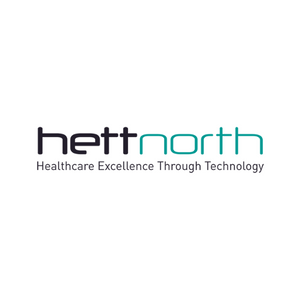In the dynamic landscape of healthcare, data is a cornerstone that fuels decision-making, enhances patient care, and drives innovation. For the NHS, effective data governance plays a pivotal role in ensuring the integrity, security, and utility of healthcare information. In this blog, we explore the six key roles of NHS data governance and its impact on shaping a robust and patient-centric healthcare system.
Roles of NHS Data Governance
1. Ensuring Data Quality and Accuracy
At the heart of NHS data governance is the commitment to maintaining high standards of data quality and accuracy. Accurate and reliable information is critical for informed decision-making by healthcare professionals. By establishing rigorous data quality standards, the NHS ensures that the information stored and used across its vast network is trustworthy, fostering a foundation of excellence in patient care.
2. Safeguarding Patient Privacy and Confidentiality
Protecting patient privacy and maintaining the confidentiality of healthcare data are paramount responsibilities of NHS data governance. Strict adherence to data protection regulations, such as the General Data Protection Regulation (GDPR), ensures that patient information is handled with the utmost care and sensitivity. Robust data governance frameworks establish protocols for access control, encryption, and secure data transmission, safeguarding patient confidentiality at every level.
3. Facilitating Interoperability and Integration
The NHS is a complex ecosystem with multiple stakeholders, including hospitals, primary care providers, and social care services. Effective data governance facilitates interoperability, ensuring that disparate systems can seamlessly exchange and integrate information. This interconnectedness enables healthcare professionals to access a comprehensive view of a patient's health history, improving care coordination and enhancing the overall patient experience.
4. Driving Informed Decision-Making
In the pursuit of excellence, data governance in the NHS plays a crucial role in empowering healthcare professionals with timely and accurate information. Data-driven decision-making allows clinicians and administrators to assess the effectiveness of treatments, track patient outcomes, and allocate resources efficiently. By harnessing the power of data, the NHS can continuously refine its strategies and protocols, leading to improved patient care and organisational efficiency.
5. Ensuring Ethical Data Use and Research Integrity
Ethical considerations are integral to NHS data governance, particularly when it comes to using patient data for research purposes. Establishing clear guidelines for ethical data use ensures that patient information is utilised responsibly and in compliance with ethical standards. This commitment to research integrity not only advances medical knowledge but also builds trust between patients and healthcare providers, fostering a positive and collaborative healthcare environment.
6. Enhancing Cybersecurity Measures
As technology becomes increasingly integrated into healthcare, the importance of robust cybersecurity measures cannot be overstated. NHS data governance prioritizes the protection of healthcare systems from cyber threats that could compromise patient data. Implementing advanced cybersecurity protocols, regular audits, and staff training are essential components of safeguarding the NHS against cyber threats, ensuring the resilience of healthcare infrastructure.
The Future of NHS Data Governance
In navigating the complex landscape of healthcare, the roles of NHS data governance are pivotal in shaping a healthcare system that is efficient, patient-centric, and future-ready. From safeguarding patient privacy to driving data-driven decision-making, each facet of data governance contributes to the overarching goal of providing high-quality healthcare services to the UK population.
The commitment of the NHS to robust data governance is not just a regulatory requirement; it is a pledge to uphold the highest standards of excellence in healthcare delivery. As technology continues to advance and healthcare becomes increasingly data-centric, the roles of NHS data governance will evolve to meet new challenges and seize emerging opportunities. The journey towards healthcare excellence in the UK is intrinsically linked to the effective governance of healthcare data, ensuring a brighter and healthier future for all.
Find out More about NHS Data Governance at HETT North
Join us on 28th February in Manchester to find out more about the key benefits of integrated care.
Register for your FREE pass now to enjoy:
- 40+ hours of CPD-accredited content across 6 content streams
- 100+ innovative suppliers
- 1-2-1 meeting opportunities with over 1,400 like-minded peers
- 100+ expert speakers
%20(1).png?width=500&height=58&name=HETT%20insights%20logo%20RGB-04%20(1)%20(1).png)


